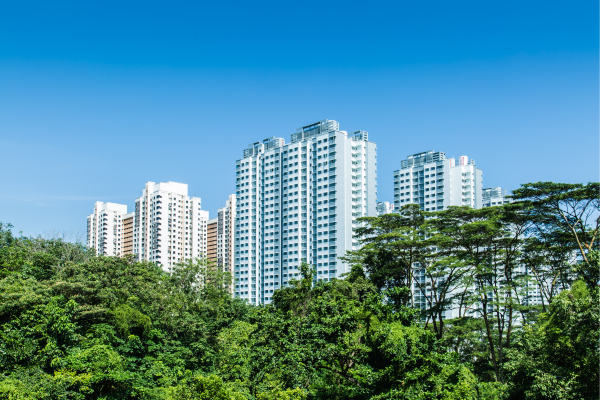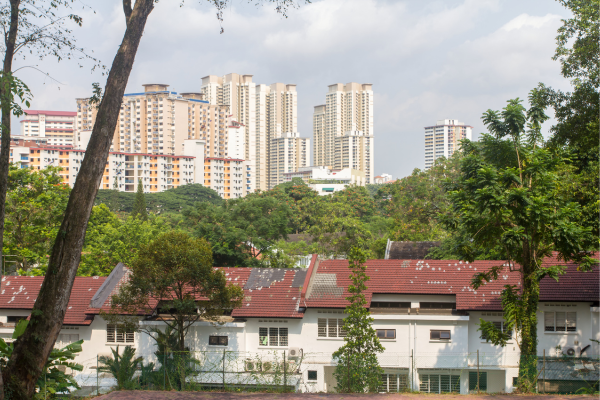Singapore’s property market has long been a beacon of stability and growth, attracting investors from around the globe. In this dynamic landscape, the key to maximizing your investment lies in understanding the market trends and employing effective strategies tailored to this unique environment. Whether you’re a seasoned investor or new to the property scene, this guide will provide you with insights and strategies to navigate the Singapore property market effectively.
Singapore’s property market is characterized by its resilience and potential for growth. In recent years, we’ve seen a significant shift towards diversification in investment, with residential sectors in neighboring regions like Hong Kong and Australia garnering interest. In Singapore, the emphasis has been on balancing the development of luxurious and mass-market condominiums, with each catering to different segments of the market.
Diversification in Property Investment
Diversification remains a key strategy in mitigating risk and optimizing returns in the property market. This involves spreading investments across various property types, including residential, commercial, and industrial, as well as across different geographical locations. By diversifying, investors can protect themselves against market volatility and tap into different growth potentials offered by each sector.

Maximizing Returns: A Strategic Approach
Maximizing returns on property investment requires a blend of strategic acquisition and efficient management. Here are some key strategies:
a) Identifying High-Potential Investments: Focus on locations with high rental demand and growth potential. Properties in prime areas or near significant developments often yield higher returns.
b) Improving Rental Yield: Ensure your property remains attractive to tenants. This could mean investing in renovations or offering competitive rental rates.
c) Capital Appreciation: Invest in areas with potential for future development, which can lead to an increase in property value over time.
d) Risk Management: Keep abreast of market changes and be prepared to adjust your strategies accordingly. This includes staying informed about regulatory changes and economic trends.
Types of Properties to Invest in Singapore
Singapore’s property market offers a variety of investment options, each with its unique attributes and potential for returns. Understanding these different types of properties is essential for making informed investment decisions. Let’s explore some of the most popular investment choices in Singapore’s vibrant property market.
a) HDB Flats:
Housing Development Board (HDB) flats are a staple in Singapore’s residential landscape. While primarily designed for owner-occupation, they also present investment opportunities. For many Singaporeans, their HDB flat is not just a home but also a key asset in their investment portfolio. The rules for buying and selling HDB flats are more restrictive compared to other property types, and they typically have a shorter leasehold. However, their affordability makes them an attractive option for first-time homebuyers and investors alike.
b) Condominiums:
Condominiums are a popular choice among investors due to their range of amenities and potential for higher rental yields. They cater to a diverse market, from expatriates to young professionals, and often offer luxurious facilities. Investing in condominiums can be particularly lucrative in prime areas or locations with high rental demand. They also present opportunities for capital appreciation, especially in up-and-coming neighborhoods or areas slated for future development.
c) Landed Properties:
Landed properties, such as bungalows, semi-detached, and terrace houses, offer the allure of space and privacy. They are typically more expensive and require more maintenance but are considered a symbol of prestige. For investors with a higher budget and a long-term view, landed properties can be a worthwhile investment. They tend to appreciate in value over time and can offer substantial returns, especially in well-located areas.
d) Commercial and Industrial Properties
Beyond residential properties, Singapore’s market also includes commercial and industrial options. These properties often come with different sets of regulations and investment dynamics. They can be a good diversification strategy for investors looking to expand their portfolios beyond residential real estate.

Maximizing Returns on Property Investments
Maximizing returns on property investments in Singapore requires a strategic approach, encompassing various aspects from the type of property to the management of the investment. Here are key strategies to consider:
a) Choose the Right Location
The location of your property is paramount. Areas with high demand for rentals, proximity to amenities, good schools, and transport links often yield higher returns. Properties in developing areas also offer potential for capital appreciation as the neighborhood grows.
b) Type of Property
Different types of properties offer different return potentials:
Luxury Condos: Located in prime areas, they generally offer the highest potential returns but come with a higher price tag and risk.
Mass-market Condos: These are more affordable and cater to the middle-income group, offering lower potential returns but easier financing options.
Executive Condos: Subsidized by the government, they are popular among first-time buyers and offer moderate potential returns.
c) Efficient Property Management
Good management is crucial for maintaining the property’s value and appeal to tenants. Consider working with a reputable property management company to ensure your investment is well-maintained.
d) Market Trends and Timing
Stay informed about the latest market trends and adjust your investment strategy accordingly. Timing your entry and exit in the market can significantly impact on your returns.
e) Legal and Regulatory Compliance
Ensure that your investment complies with all legal and regulatory requirements. This includes understanding policies like the Additional Buyer’s Stamp Duty (ABSD) and ensuring proper financing arrangements.
By carefully considering these factors, you can strategically position your property investment for maximum returns. Keep in mind that property investment involves risks, and it’s essential to conduct thorough research and consider seeking professional advice.
Building a Successful Property Portfolio in Singapore
Singapore’s property market is expected to continue its trajectory of growth, presenting both challenges and opportunities. Whether you are looking to invest in residential, commercial, or industrial properties, the potential for substantial returns exists, but it requires careful navigation and informed decision-making.
We encourage investors to continue educating themselves about the market and to seek advice from real estate professionals. The landscape of property investment is ever evolving, and staying ahead requires a commitment to learning and adaptation.
Want to find the best mortgage rate in town? Check out our free comparison service to learn more!
Read more of our posts below!

